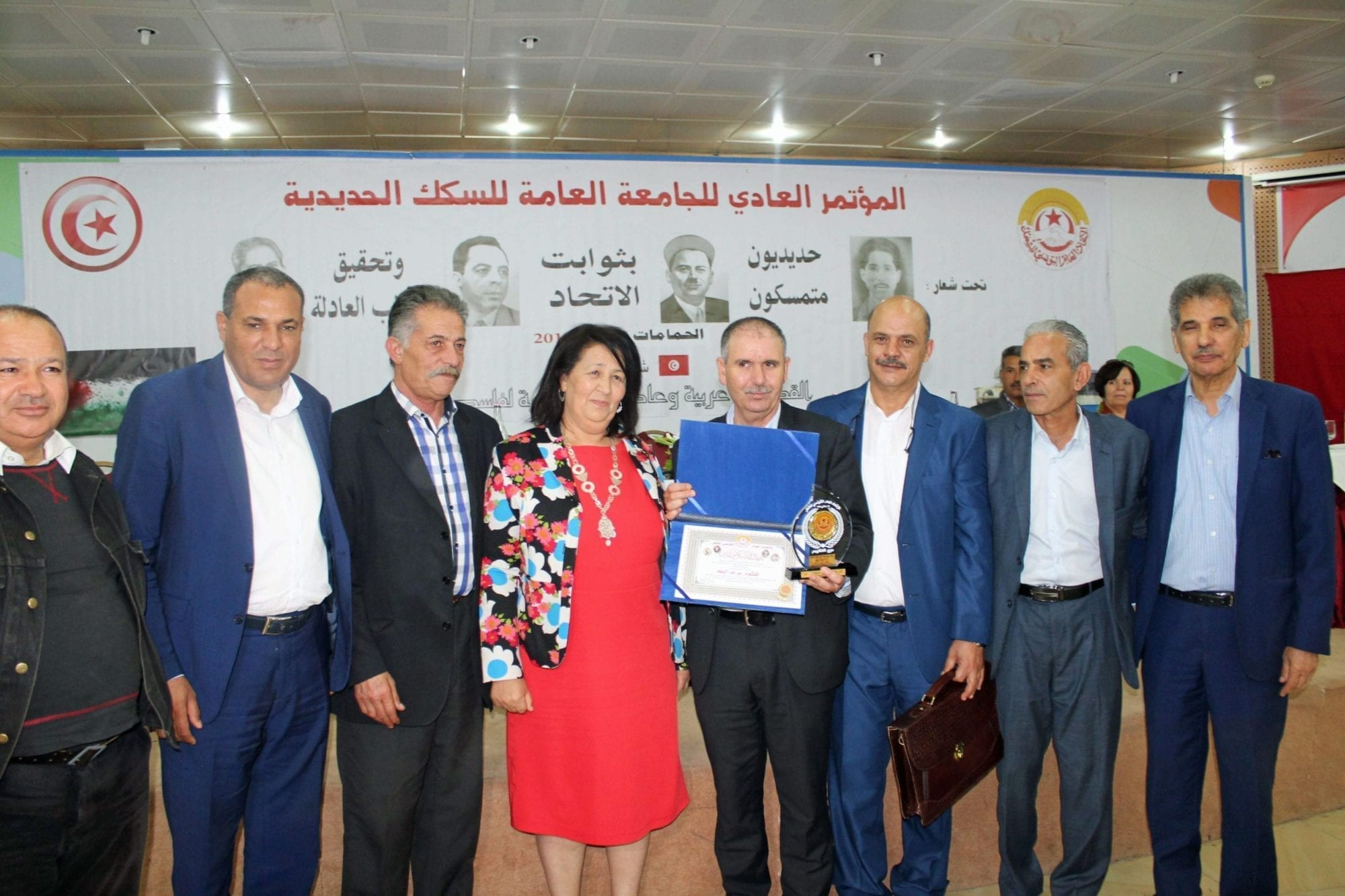
May 9, 2018
Kalthoum Barkallah, Solidarity Center senior program officer and master trainer in Tunisia, this week received a lifetime achievement award from the General Union of Tunisian Workers (UGTT). The award, the nationwide union’s highest honor, is given to union activists for their dedication to union work and in recognition of their struggle in the defense of workers and human rights.

The UGTT award is the union’s highest honor.
“We are enormously proud of Kalthoum and the great contribution she brings to the labor movement through her incredible dedication and accomplishments,” says Hind Cherrouk, Solidarity Center country program director for the Maghreb region. “Kalthoum’s expertise in nurturing and training new generations of leaders, especially women unionists, has ensured the labor movement in Tunisia and beyond is served by new, skilled union activists.”
Presented by UGTT General Secretary Noureddine Tabboubi, the award reads: “Honoring sister and union activist Kalthoum Barkallah in appreciation for her dedication and perseverance in support for union work.”
In conferring the award, Taboubbi noted Kalthoum’s popularity among the UGTT’s union structures from local to national.
“When I began the struggle for democracy, freedom and the rights of women in 1979, I never for a moment imagined that there would be a day when I would be recognized or honored for my part in realizing these noble objectives,” says Barkallah.
Building Women’s Leadership in Their Unions
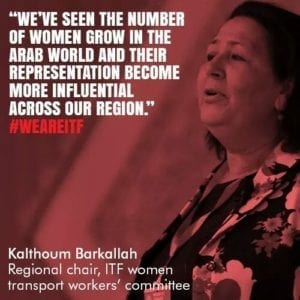 As an activist with the Tunisian General Federation of Railways, Barkallah was first elected as a deputy general secretary in 1983, heading up training within the union. She later was elected deputy general secretary in charge of international relations. In the railways industry, Barkallah was known as the “iron lady” for her determination and struggle to challenge her male colleagues in a male-dominated sector to achieve equality and justice for all.
As an activist with the Tunisian General Federation of Railways, Barkallah was first elected as a deputy general secretary in 1983, heading up training within the union. She later was elected deputy general secretary in charge of international relations. In the railways industry, Barkallah was known as the “iron lady” for her determination and struggle to challenge her male colleagues in a male-dominated sector to achieve equality and justice for all.
As an active union leader with the UGTT, Barkallah built on the gender empowerment training she began in the railway sector to reach union members in a variety of industries throughout Tunisia, championing women’s rights there and supporting her sisters beyond its borders.
Barkallah, who in 2006 was elected president of the International Transport Workers’ Federation (ITF)–Arab Women’s committee, also recently received an award from the ITF Women’s Committee for her fight and struggle in support of women workers in the transport sector.
Throughout her decades of service to workers and their unions, Barkallah balanced both work and family duties, raising two sons who each now have their own children.
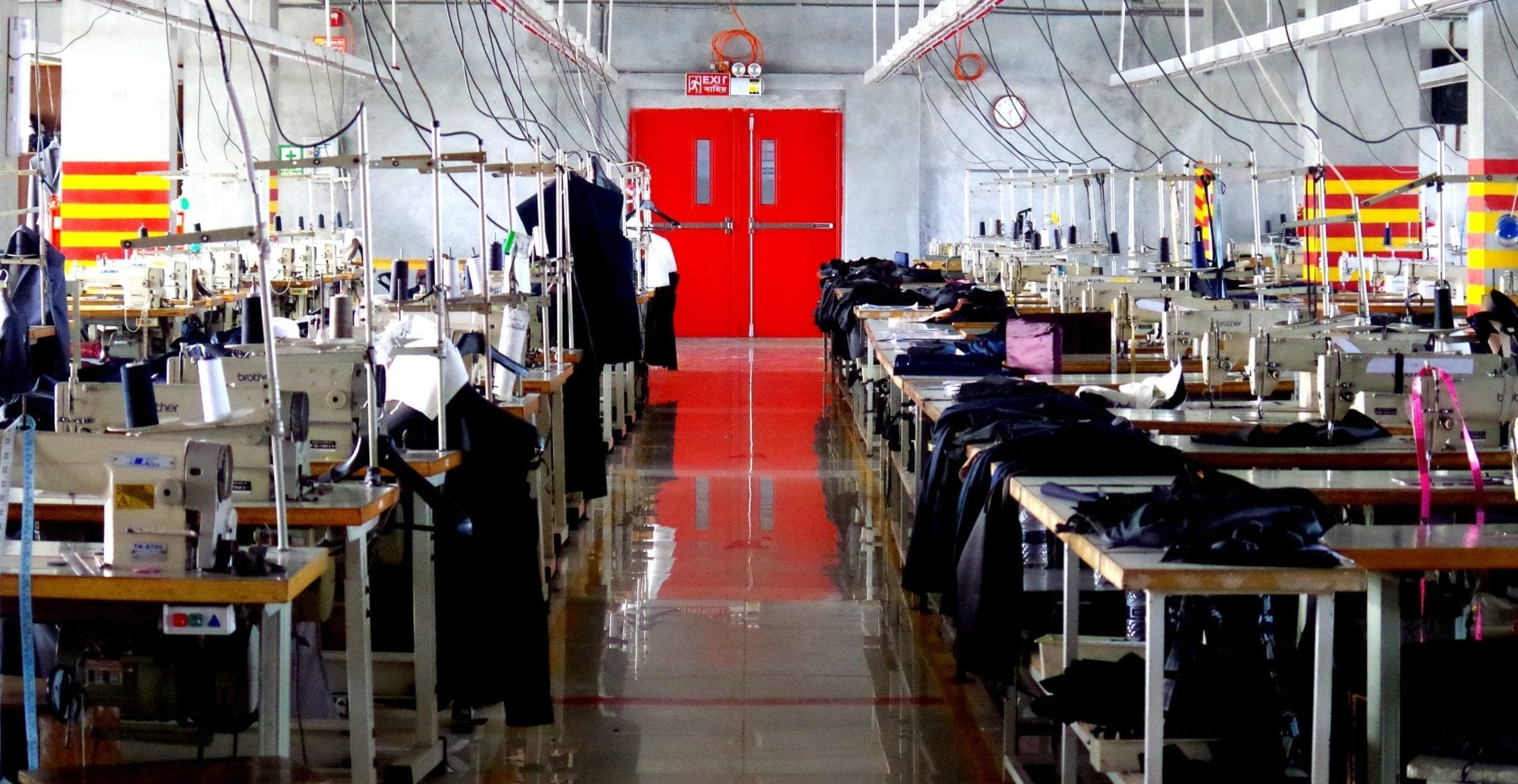
Apr 24, 2018
Approximately 1 in 5 workers worldwide are employed in global supply chains. Millions of them do not have access to decent work and must endure long hours, low wages and hazardous working conditions.
The majority of people working for the world’s biggest multinational corporations are ‘hidden’ in subcontracted work around the globe. Without global rules governing supply chains, multinational corporations are rarely held accountable for violating worker rights in places around the world.
The Solidarity Center partners with unions and other organizations to educate workers about their rights on the job and to empower them with the tools they need to improve their workplaces together.
Learn more about the Solidarity Center’s work in the global garment industry
IN THE NAME OF FASHION
The global garment industry that produces the world’s clothes employs as many as 75 million workers. Garment workers’ earnings usually fall well below the living wage for the urban areas where their factories are located.
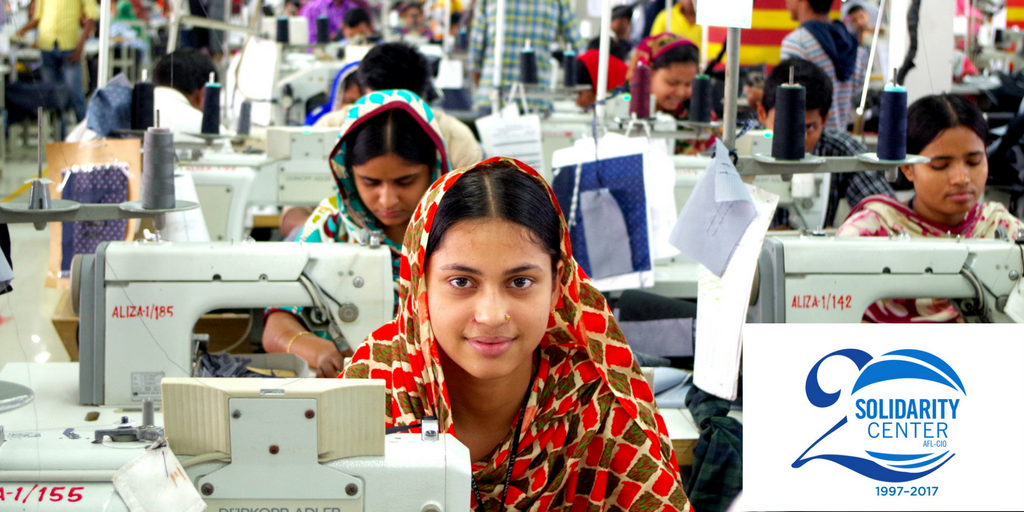
Garment workers in Gazipur, Bangladesh. Credit: Solidarity Center
DISASTER STRIKES TAZREEN
Poverty isn’t the only problem for garment workers. Hazardous working conditions and poor safety measures put the lives of millions of garment workers around the world at risk for the sake of fashion.
On November 24, 2012, a massive fire tore through the Tazreen Fashions Ltd. factory in Dhaka, Bangladesh, killing more than 100 garment workers and gravely injuring thousands more.
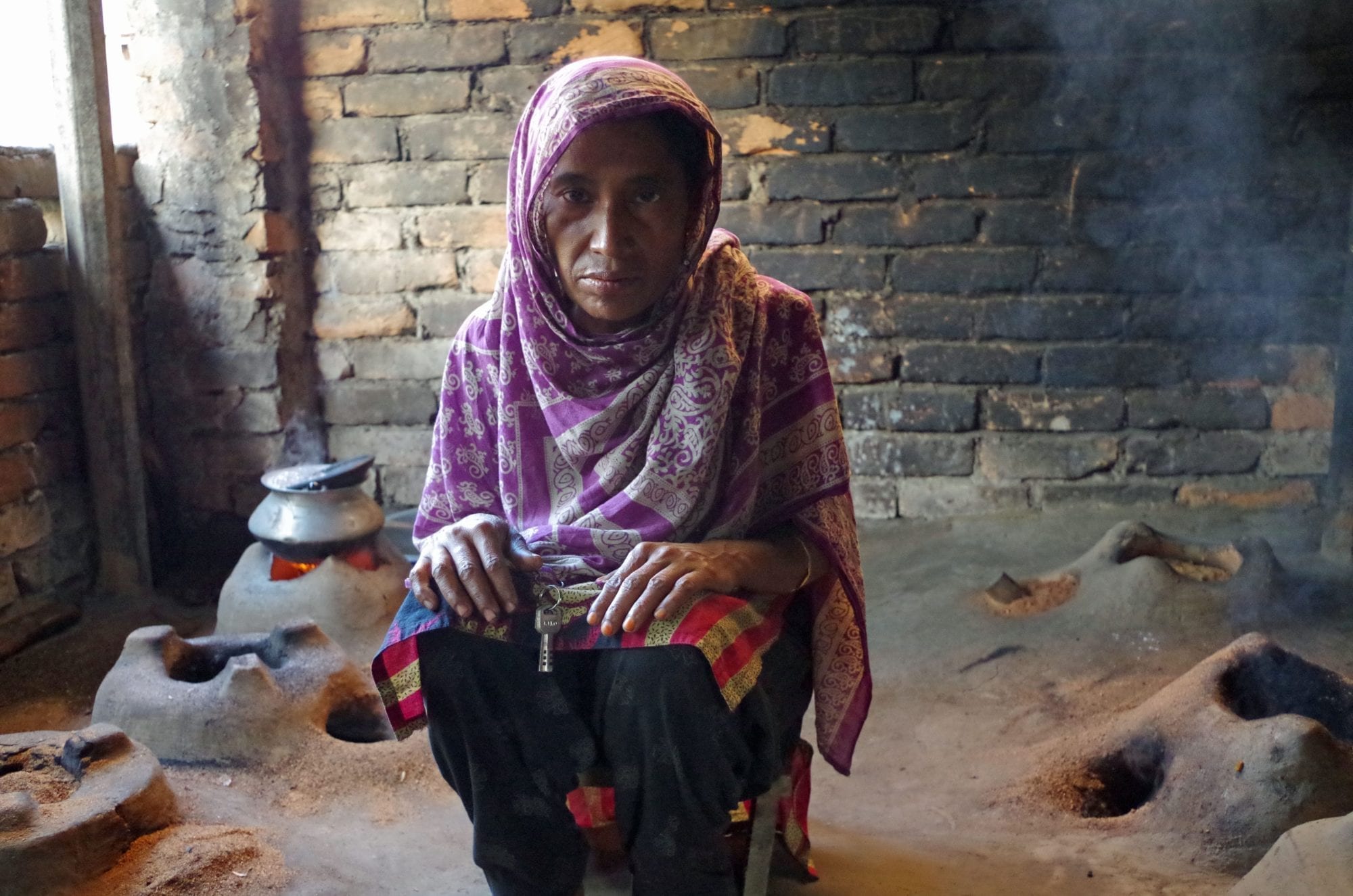
Anju, a Tazreen factory fire survivor, suffered severe injuries but never received compensation. Credit: Solidarity Center/Mushfique Wadud
Just five months later, more than 1,000 garment workers were killed and more than 2,500 were injured when the Rana Plaza garment factory building collapsed outside of Dhaka.
A structural engineer had already declared the building structurally unsafe and had demanded it be closed, but workers were told to show up anyways or else risk losing their jobs.
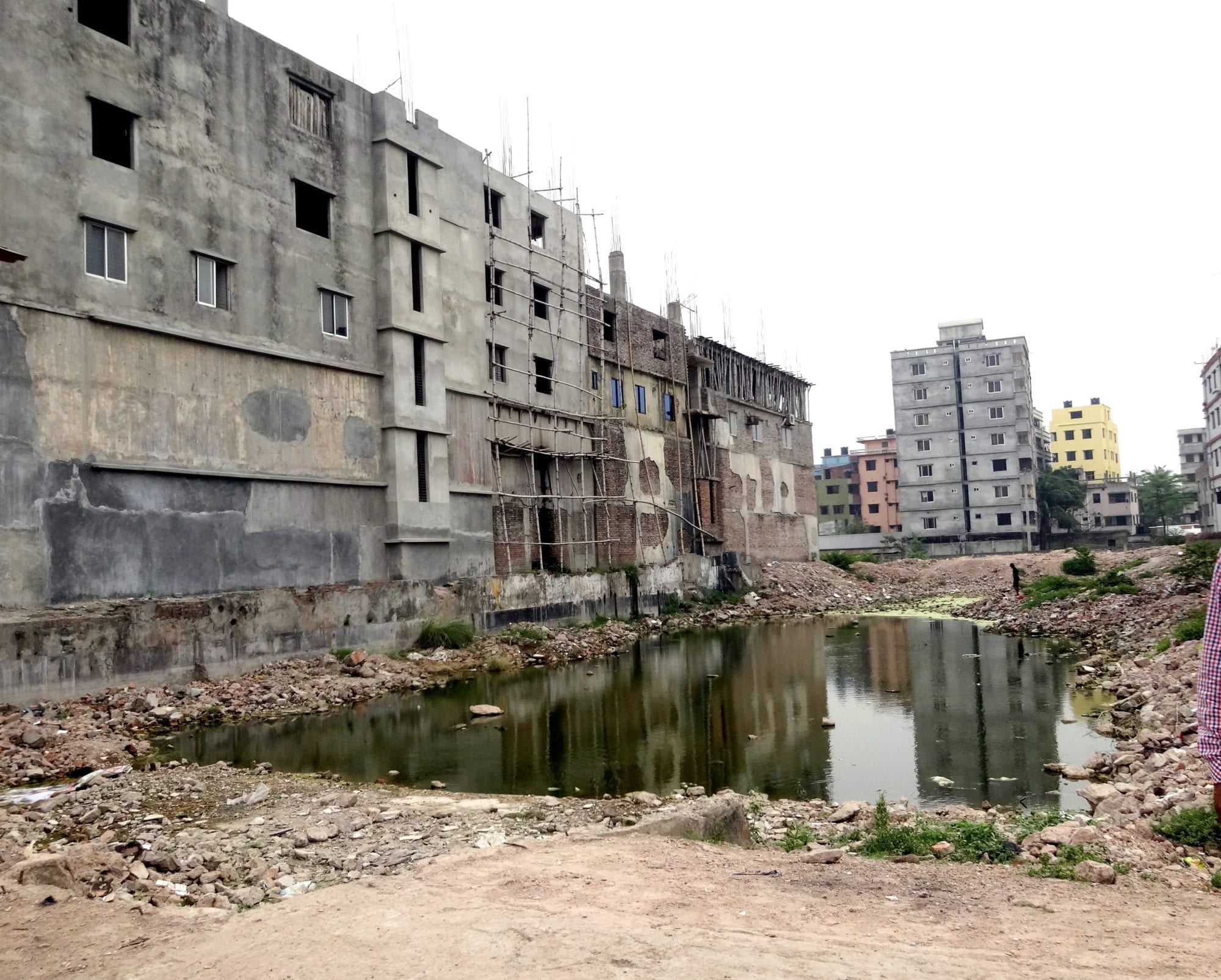
The site of the Rana Plaza building two years after it collapsed. Credit: Solidarity Center
While the Tazreen fire and the Rana Plaza collapse were catastrophic, they are not isolated incidents.
In the four years following Tazreen, fires, building collapses and other tragedies have killed or injured more than 4,800 garment workers in Bangladesh, according to data collected by the Solidarity Center.
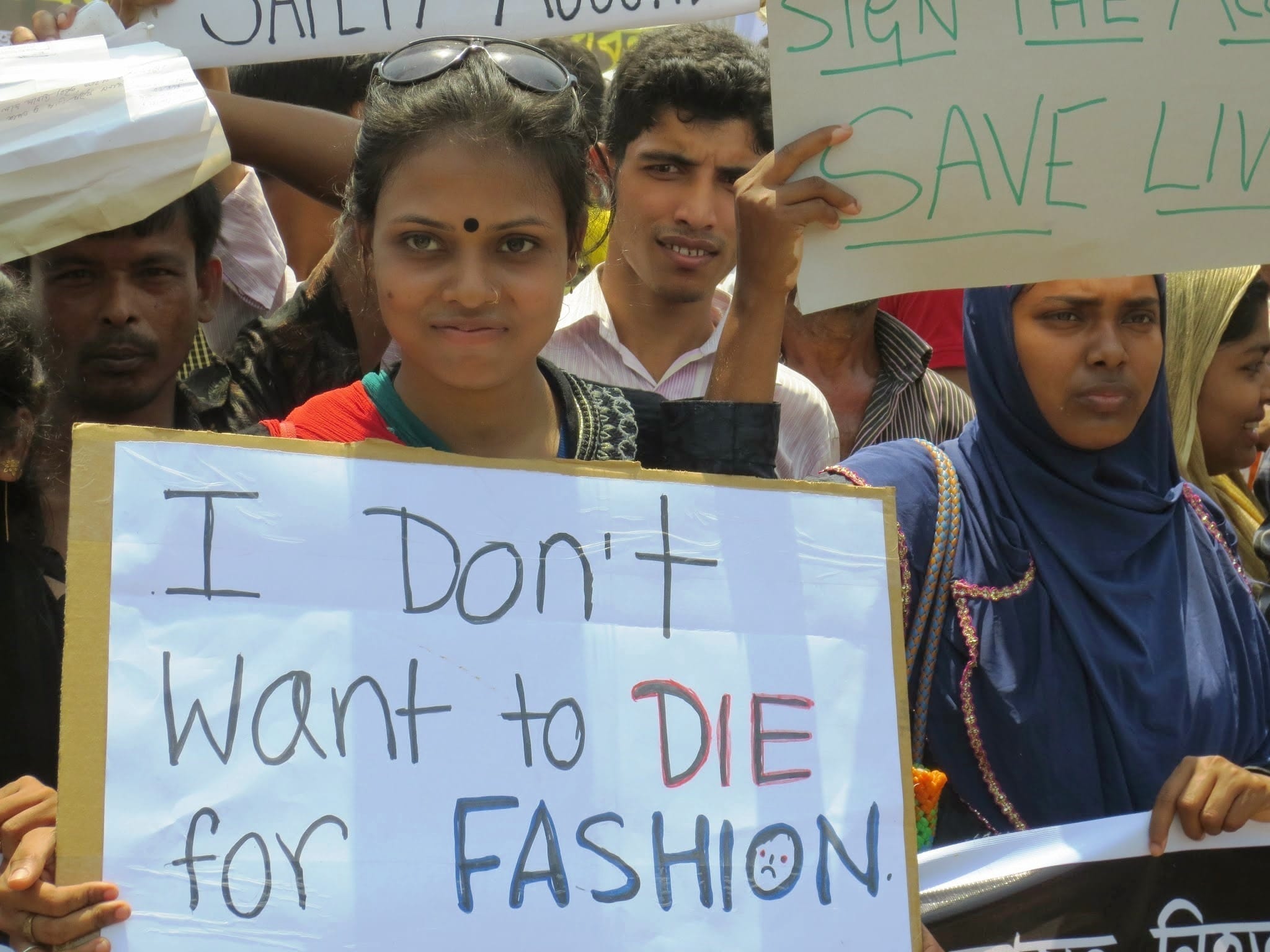
A young woman protests garment worker deaths in Bangladesh. Credit: Solidarity Center/Sifat Sharmin Amita
WORKERS DEMAND CHANGE
In the wake of these disasters, garment workers throughout Bangladesh are standing up for their rights to safe workplaces and living wages. Workers have staged rallies to demand that multinational corporations respect their human rights.
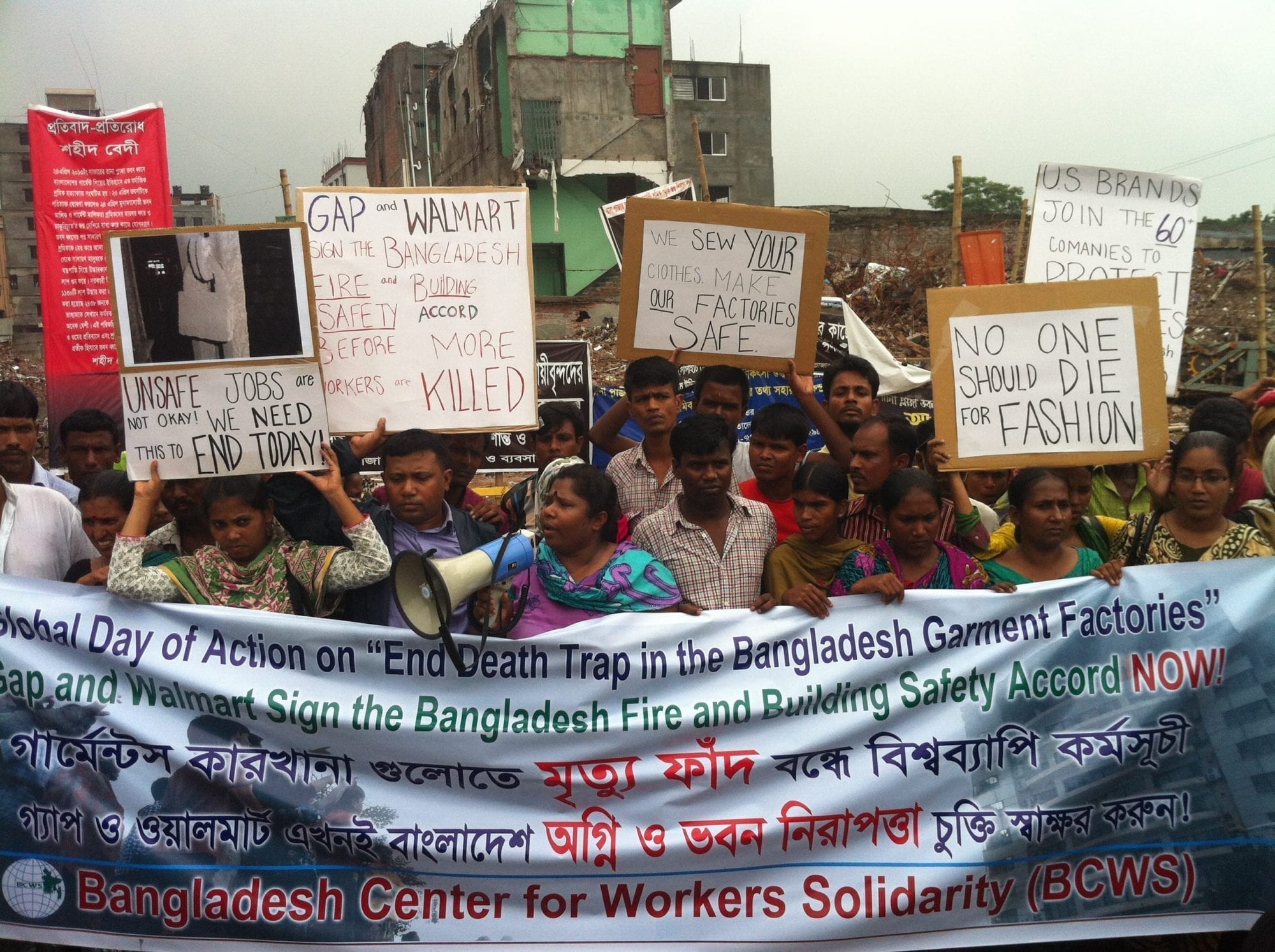
Tens of thousands of workers rallied on the one-year anniversary of the Rana Plaza disaster. Photo: Solidarity Center/Sifat Sharmin Amita
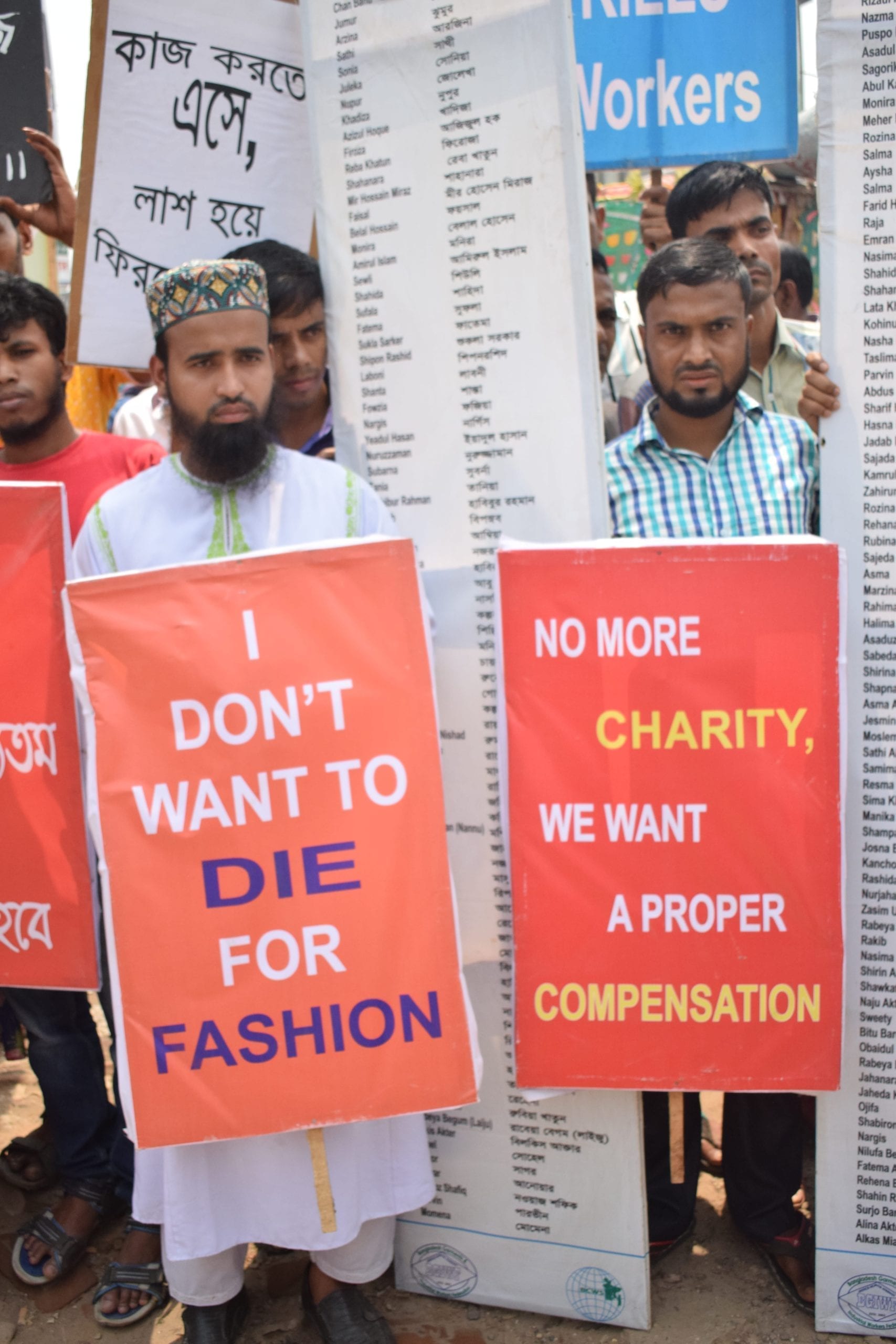
Workers and loved ones protest in Bangladesh at the Rana Plaza five-year anniversary rally. Credit: Solidarity Center/Musfiq Tajwar
The invisibility of garment workers and their struggles makes it difficult for them to hold big clothing brands accountable.</p> <p>The subcontracting process in global supply chains obscures human rights abuses and distances workers from the multinational corporations for whom they produce.
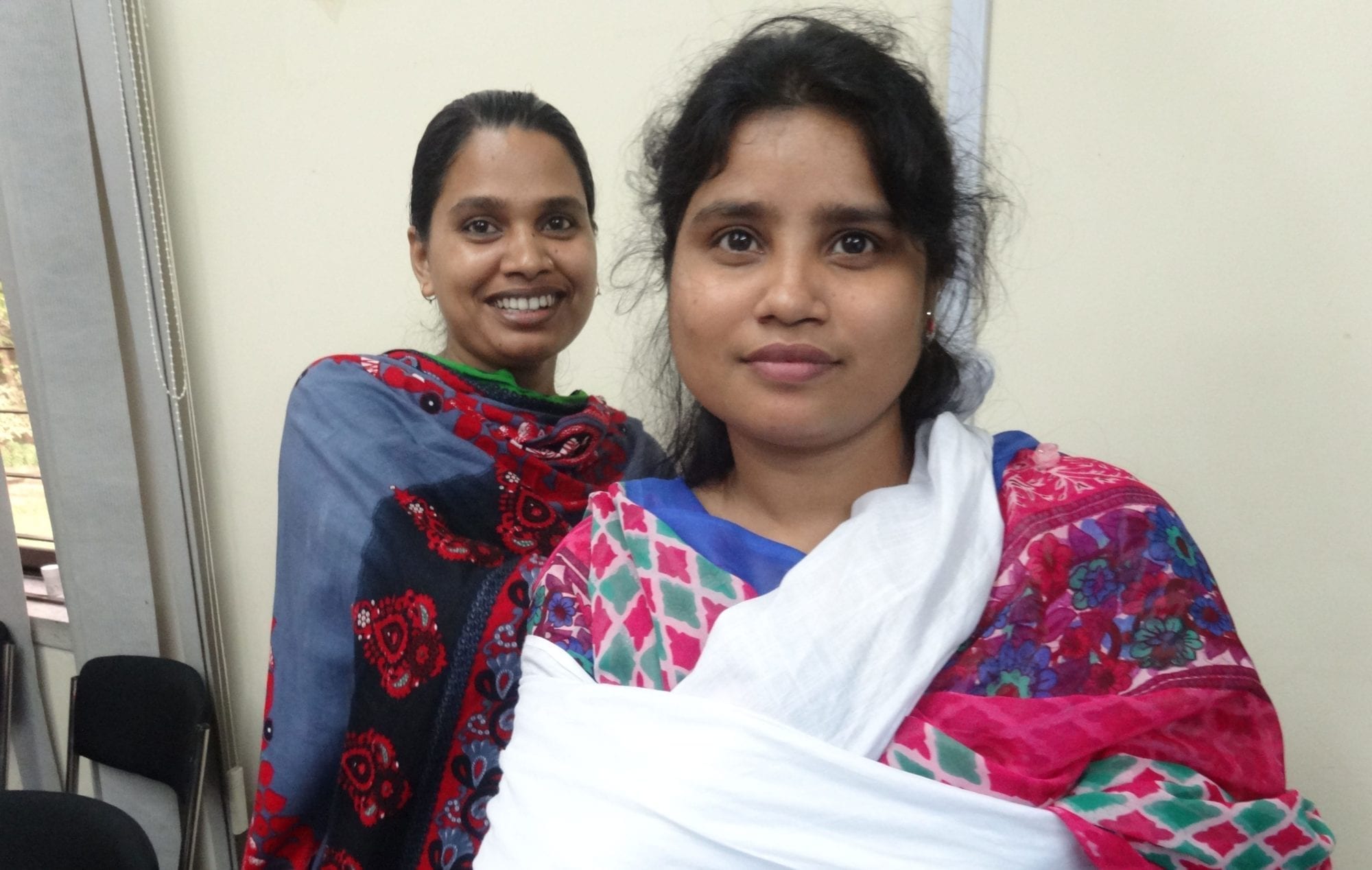
Credit: Solidarity Center/Rakibul Hasan
WORKERS STAND TOGETHER
Worker disenfranchisement also isolates individual workers and makes it harder for them to stand up for their rights. Garment workers who try to speak out about unsafe working conditions often fear retaliation from their employers, including violence, threats or even being fired.
Unions have helped to change that.
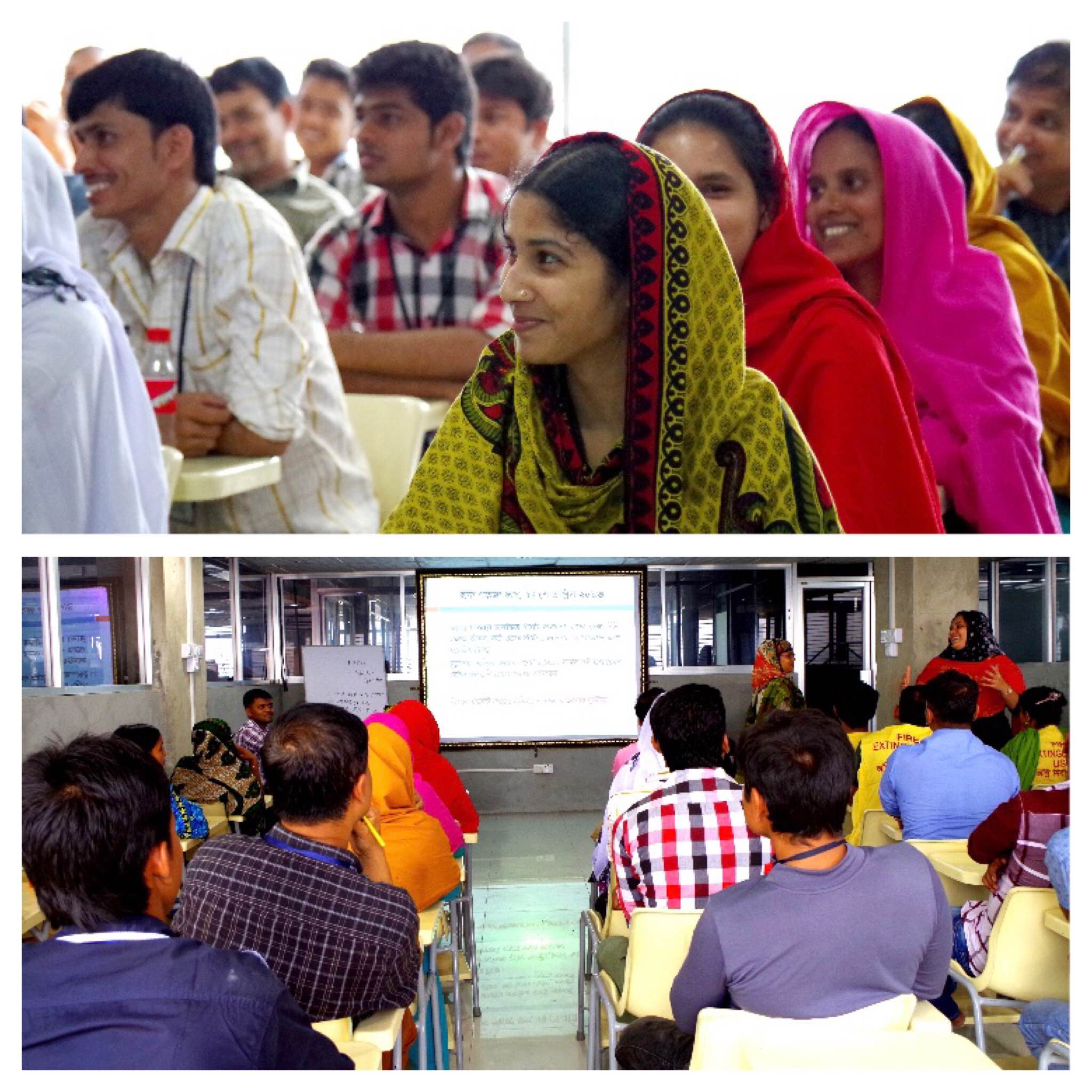
The Solidarity Center partners with numerous unions and worker associations in Bangladesh. Credit: Solidarity Center
UNIONS SAVING LIVES
Worker voices have yielded real results. The 2013 Accord on Fire and Building Safety in Bangladesh provides legally binding means for unions to hold multinational clothing brands accountable for protecting the lives and rights of workers in their supply chains.
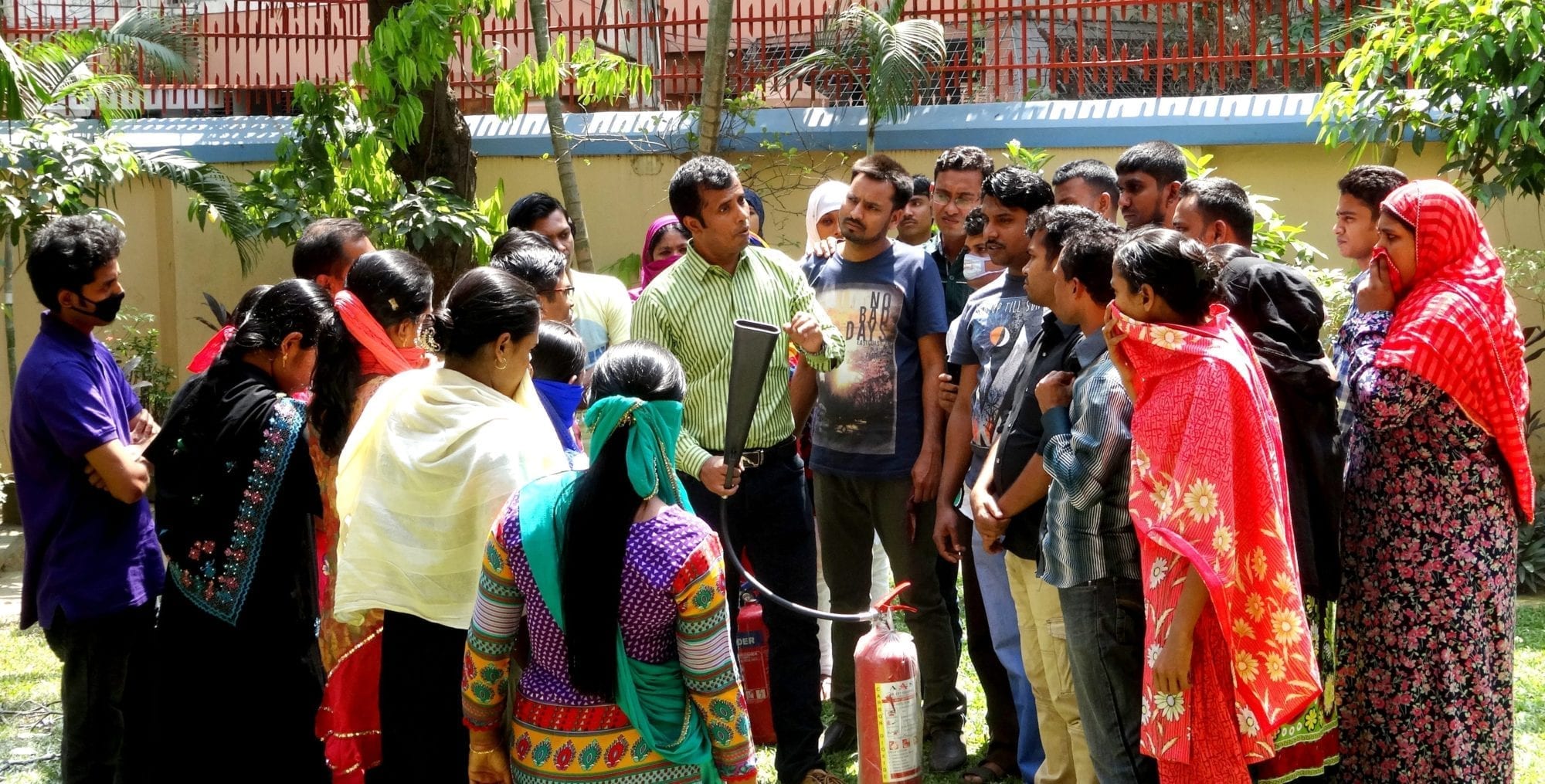
Union leaders participate in the Solidarity Center’s 10-week fire safety certification course. Credit: Solidarity Center
The Solidarity Center also provides training for workers, union leaders and factory managers to learn about fire and building safety codes, practice emergency response procedures and gain hands-on experience using fire extinguishers and other tools for saving lives.
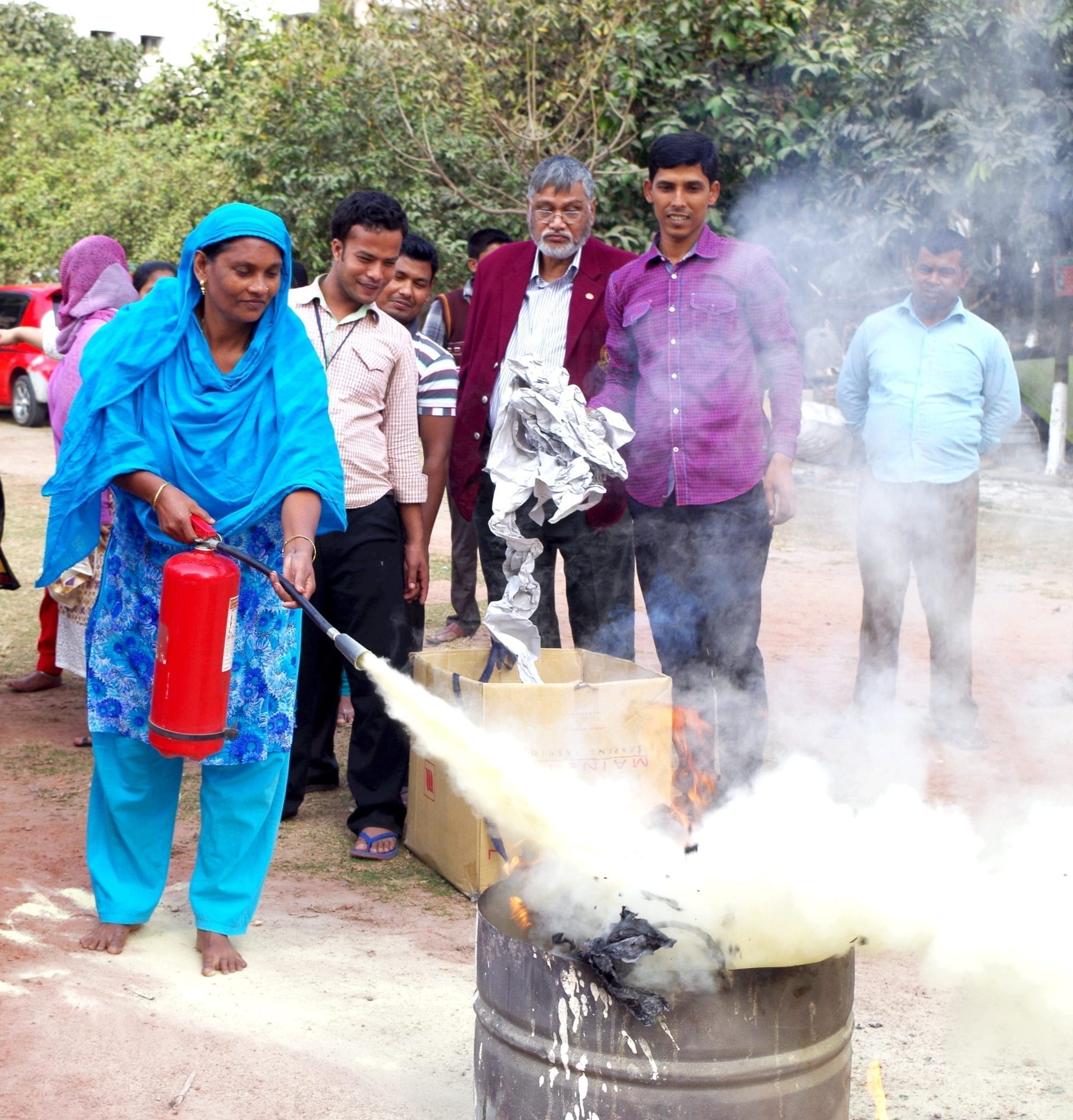
Garment workers learn fire safety and other measures to improve their working conditions. Credit: Solidarity Center
INVISIBLE NO LONGER
As workers strengthen their collective voice in their workplaces and beyond, their hard work, their lives and their humanity become visible once more.
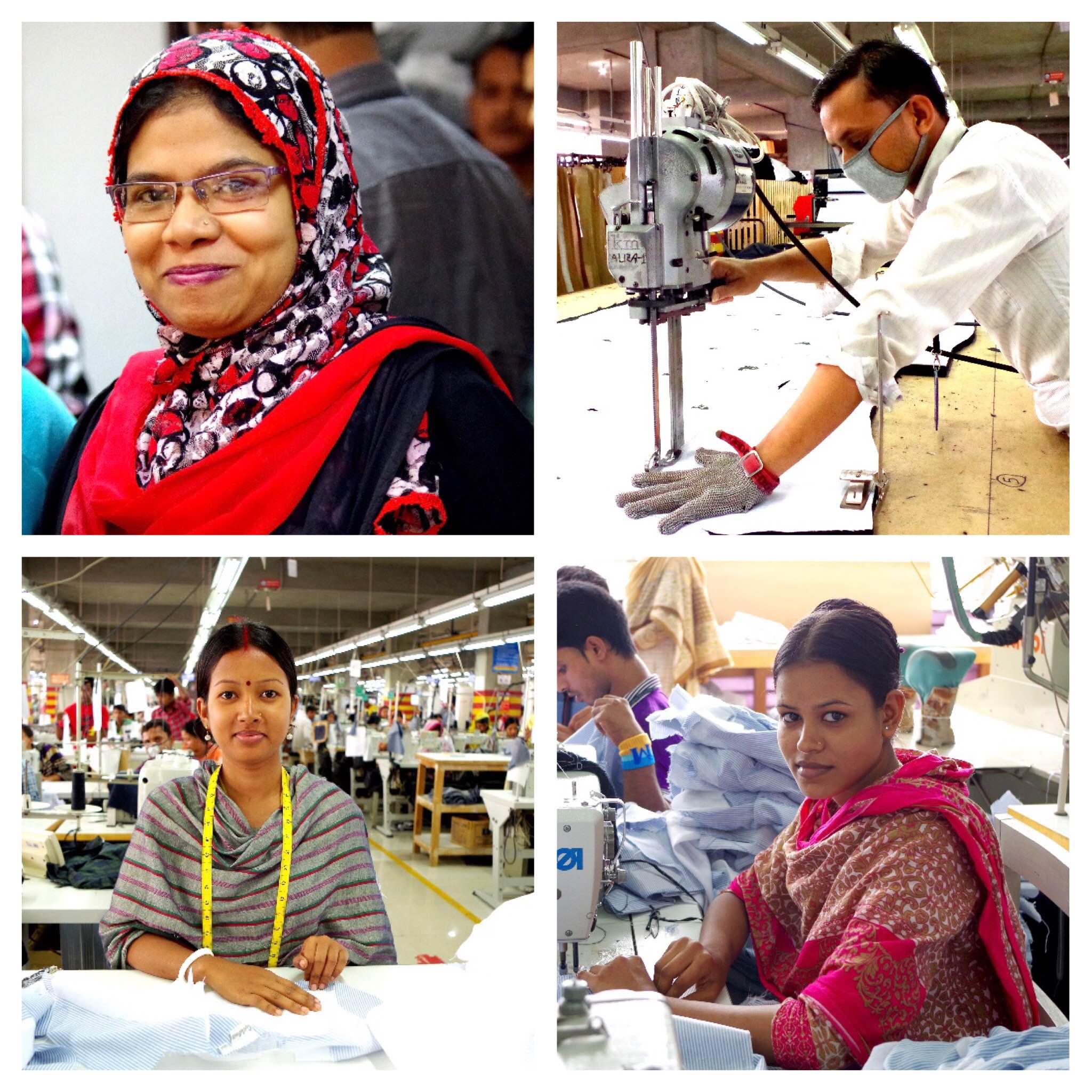
Bipasha, Quality Inspector (bottom left). Rina, Operator (bottom right) . Ratan, Tailor (top right). Credit: Solidarity Center
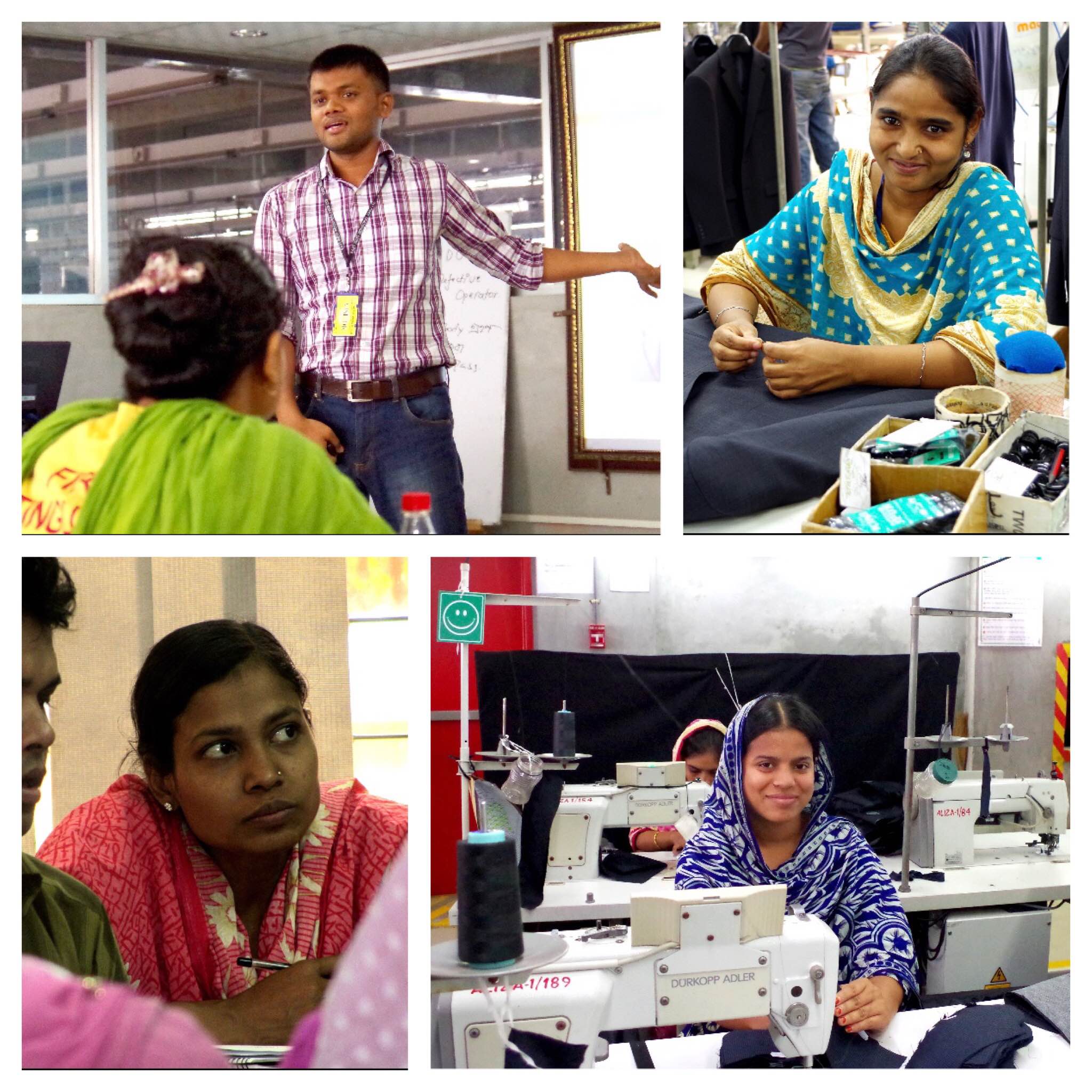
Mahfuza, Assistant Operator (top right). Sharifa, General Operator (bottom right). Credit: Solidarity Center
To learn more about garment workers in global supply chains and how the Solidarity Center supports them, visit solidaritycenter.org.
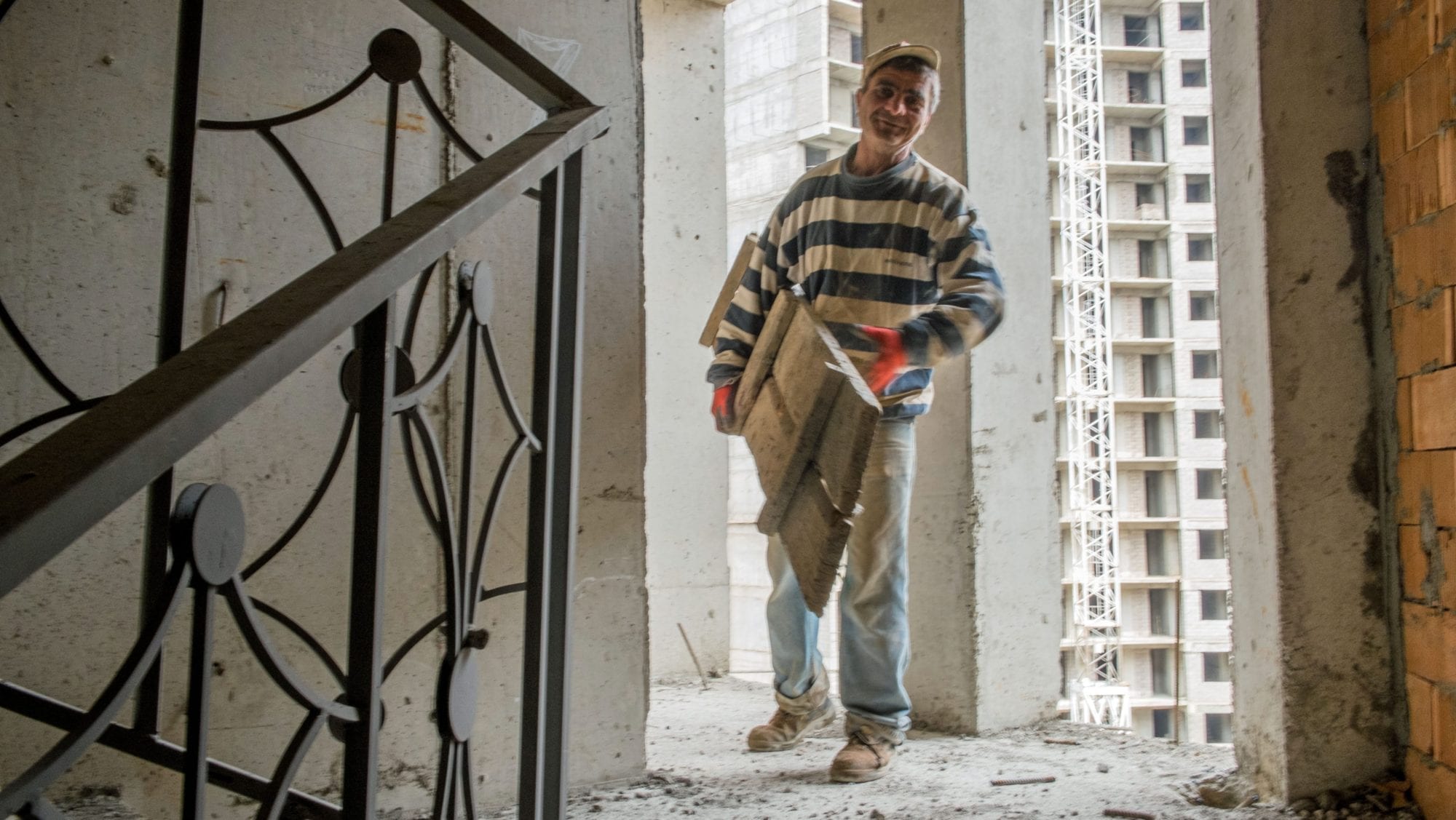
Mar 27, 2018
Georgia’s new workplace safety and health law is a step forward but does not include sufficient enforcement mechanisms and only covers workers in a few industries, according to the Georgia Trade Union Confederation (GTUC).
“What Georgia’s workers desperately need are laws to force employers to take their safety seriously, and hold them criminally responsible when they do not,” says GTUC Vice President Raisa Liparteliani. For the current labor laws to have any effect, “we first need an inspection department with the clout to back them up,” she says.
Some 455 workers died and 793 were injured on the job between 2007 and 2017, according to the GTUC, using data from the Georgia Ministry of Internal Affairs. Already this year, 12 workers have died. These figures do not include workers who have died or were injured because of occupational illnesses like black lung disease, a common and often fatal workplace hazard for miners, or other on-the-job injuries that manifest after the immediate incident. Also, according to the GTUC, some industrial accidents are not reported in part because employers threaten or blackmail workers into remaining silent.
The law, in effect March 21, covers only workers in high risk, hazardous and dangerous work, and stipulates that workplaces may be inspected only at the invitation of the owner, who must be given at least five days notice.
“The law does not provide regulations that create an efficient, fully fledged labor inspection system in compliance with the International Labor Organization (ILO) convention on labor inspection (Convention 81), in which inspectors have unlimited, free access to all public and private workplaces without the permission of employers or other officials,” according to the GTUC.
Restoring Labor Rights
Under a previous government, Georgia’s labor laws in 2006 were replaced with a labor code focused on the rights of employers. A new government in 2015 created a labor inspection department in line to meet the requirements of an Association Agreement with the European Union. Yet since then, says Liparteliani, the number of people dying and being injured in the workplace has instead increased.
A major shortcoming of the new labor inspection department is that it says “nothing of other areas of labor rights,” she says.
“Labor rights are inseparable from safety issues; a vast majority of workplace accidents occur due to physical fatigue, which is understandable when workers can’t take holidays, can’t take days off when they’re ill, and are forced to work extra hours.”
As it works to establish a labor inspection system in compliance with ILO standards, the GTUC plans to bring the issue to the Tripartite Social Partnership Commission that oversees the European Union-Georgia Association Agreement.
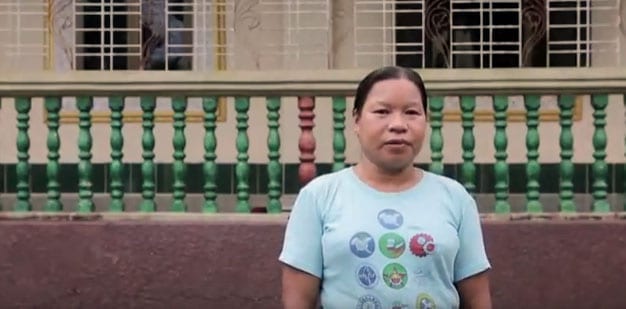
Mar 1, 2018
Hello. I am Daw Tin Tin Thein. I am 43 years old. I have worked in this factory for nine years. I am responsible for sanitation and garbage collection in this factory. It means I am responsible for keeping this factory clean and tidy.
I have been a member of the trade union for four years. During these four years, I found that the negotiations and coordination between the factory owner and the CBA [collective bargaining agreement] have resulted in many successful resolutions.
Workers receive salaries and minimum wages. Workers also enjoy transportation services and social security benefits. We conduct educational activities under the leadership of CTUM [Confederation of Trade Unions-Myanmar].
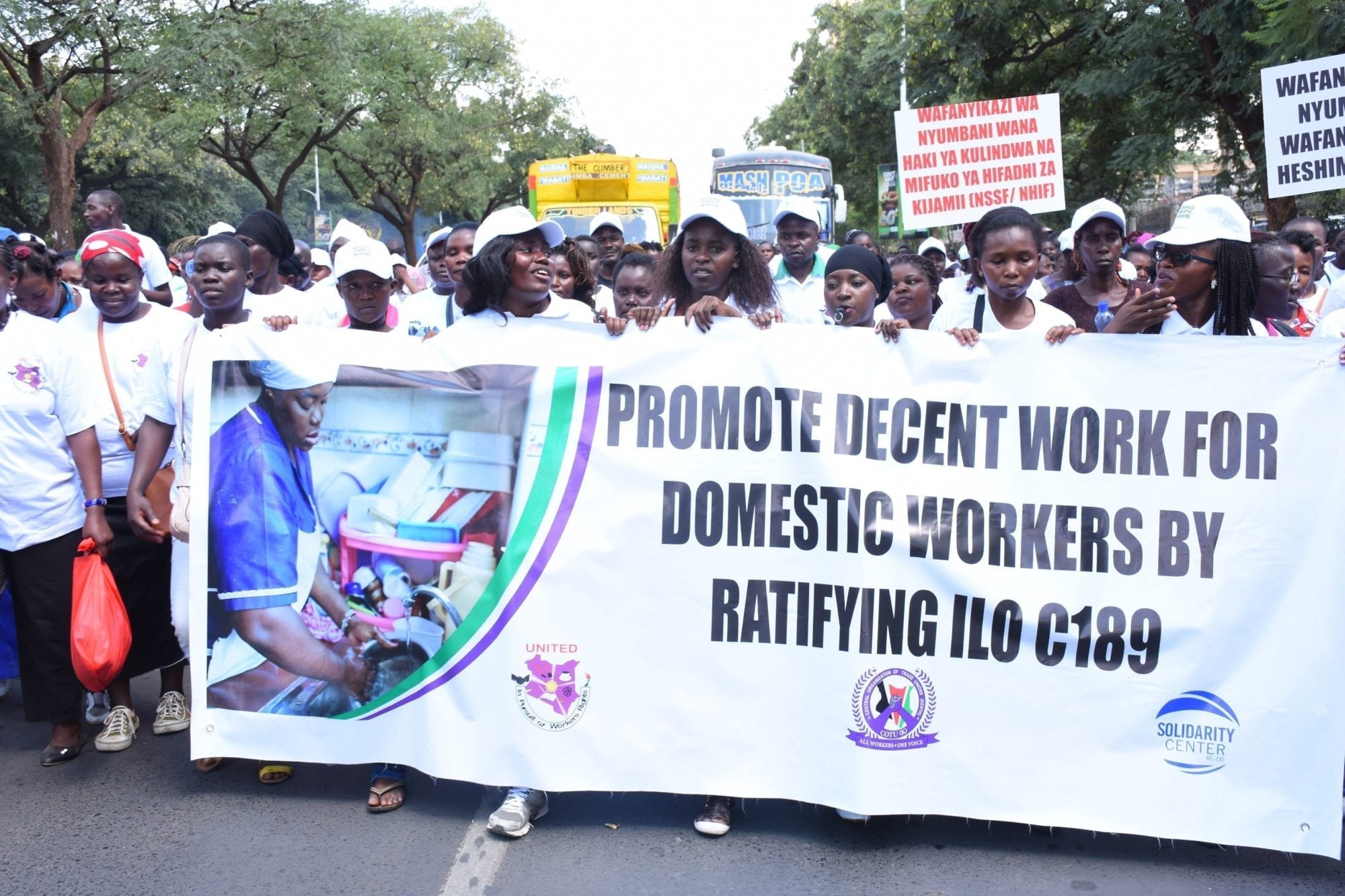
Feb 21, 2018
Hundreds of domestic workers rallied in front of the Kenya Parliament in Nairobi today, lobbying legislators to ratify International Labor Organization (ILO) Convention 189, Decent Work for Domestic Workers. The effort is part of a larger campaign to improve wages and working conditions for the country’s domestic workers by the Kenya Union of Domestic, Hotel, Educational Institutions, Hospitals and Allied Workers (KUDHEIHA) as well as to help build momentum for a global movement for domestic workers.
“It is amazing. It shows [the] power of the domestic workers in Kenya,” said Africa Regional Coordinator for the International Domestic Workers Federation (IDWF), Vicky Kanyoka.
Convention 189 established the first global standards for the more than 50 million domestic workers worldwide, addressing wages, working conditions, benefits, labor brokers and child labor. Although the convention went into force in 2013, it has been ratified by only 23 countries. Of these, only two African countries have ratified the convention: South Africa and Mauritius.
Domestic workers are some of the world’s most vulnerable workers, comprising a significant part of the global workforce in informal employment. In Kenya, domestic workers have suffered pay below minimum wage, long working hours, physical abuse, discrimination and lack of job security. More recently, domestic workers migrating to jobs in the Middle East from the Mombasa area, in an effort to escape poverty wages at home, have been preyed upon by unscrupulous labor brokers and employers.
KUDHEIHA—a Solidarity Center partner—has stepped up its political advocacy on behalf of domestic workers with the support of the Solidarity Center in recent years. Legislative changes favorable to domestic workers included an increase in their minimum wage in 2015 as well as an increase last year in the minimum wage from 10,955 to 12,825.72 Kenyan shillings ($108 to $126) per month.
KUDHEIHA’s current push for government ratification of Convention 189 is an effort to secure additional recognition, rights and standards for Kenyan domestic workers working inside and outside the country.
The Solidarity Center works with domestic workers and other organizations that represent them around the world, including in Bangladesh, Cambodia, Costa Rica, Dominican Republic, El Salvador, Indonesia, Jordan, Kenya, Liberia, Mexico, South Africa and Sri Lanka.


 As an activist with the Tunisian General Federation of Railways, Barkallah was first elected as a deputy general secretary in 1983, heading up training within the union. She later was elected deputy general secretary in charge of international relations. In the railways industry, Barkallah was known as the “iron lady” for her determination and struggle to challenge her male colleagues in a male-dominated sector to achieve equality and justice for all.
As an activist with the Tunisian General Federation of Railways, Barkallah was first elected as a deputy general secretary in 1983, heading up training within the union. She later was elected deputy general secretary in charge of international relations. In the railways industry, Barkallah was known as the “iron lady” for her determination and struggle to challenge her male colleagues in a male-dominated sector to achieve equality and justice for all.















